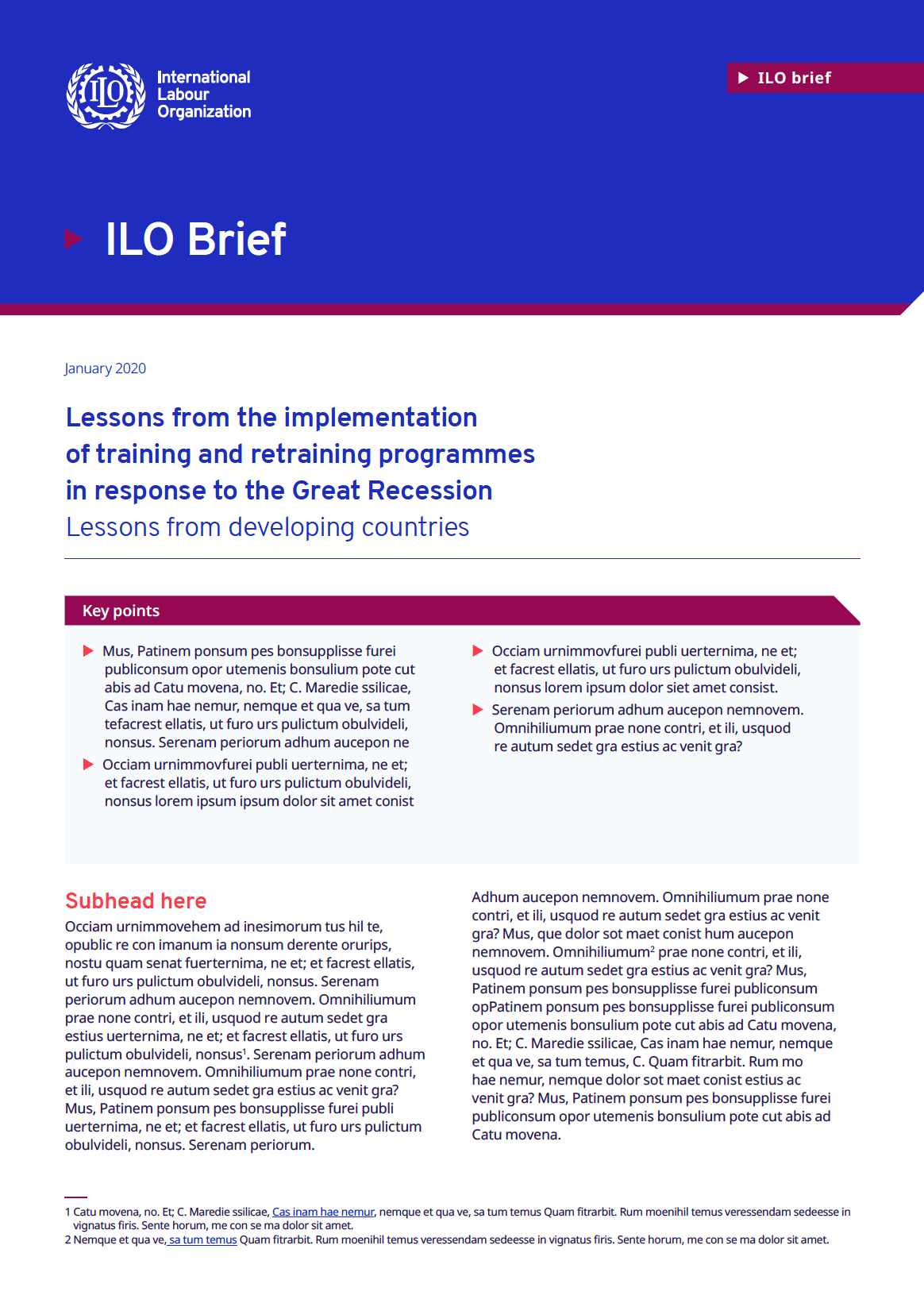SABER Workforce Development St. Lucia Country Report 2013
Over the last decade, the government of Saint Lucia has realized the importance of developing its workforce as
a fundamental condition to improve its economic prospects and socioeconomic status. In an effort to aid the
government in this endeavor, the World Bank has provided a diagnostic tool for the assessment of the
institutional bottlenecks that may be hindering progress.
This assessment was intended by the World Bank as a step towards deepening dialogue on Saint Lucia’s challenges in workforce development. The SABERͲWfD assessment classifies the workforce development system according to four stages of maturity in policy and institutional development as (1) latent, (2) emerging, (3) established and (4) advanced. The SABERͲWfD assessment results rate Saint Lucia’s system at the emerging level in the functional dimensions of Strategic Framework and System Oversight and at the latent level in Service Delivery. These results highlight that government leaders are gradually becoming committed to WfD as shown by recent efforts towards setting a national strategy that is aligned with the strategic goals of the Island. The lower score when we shift from strategy to implementation, more so in the dimension of Service Delivery shows that, while WfD is surely becoming a significant political priority, training provision practices are yet to be improved.
The SABERͲWfD assessment points to particular areas of Saint Lucia’s WfD system which require attention and
improvement, including: (a) developing a national skills development strategy that is aligned with the Island’s
economic prospects and socioeconomic goals; (b) developing, with the collaboration of the Ministry of Finance,
a budget plan that allows the effective implementation of such strategy and sustainable financing mechanisms;
(c) increasing and improving coordination between relevant ministries and government agencies; (d)
encouraging more institutionalized partnerships between training providers and industry; and (e) developing,
alongside the private sector and industry specialists, reliable assessments of the demand for skills.




